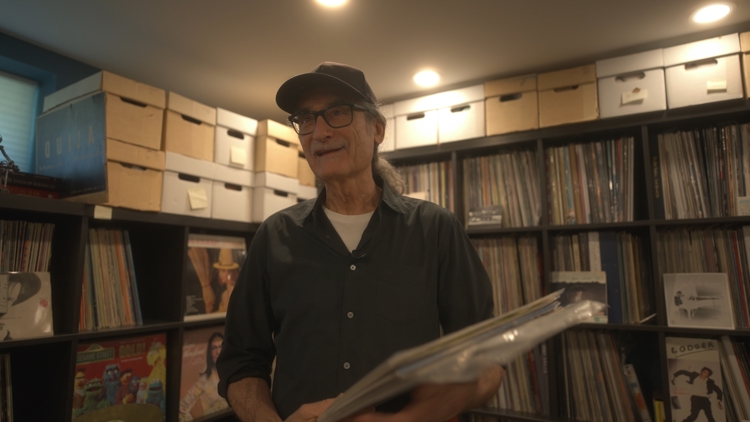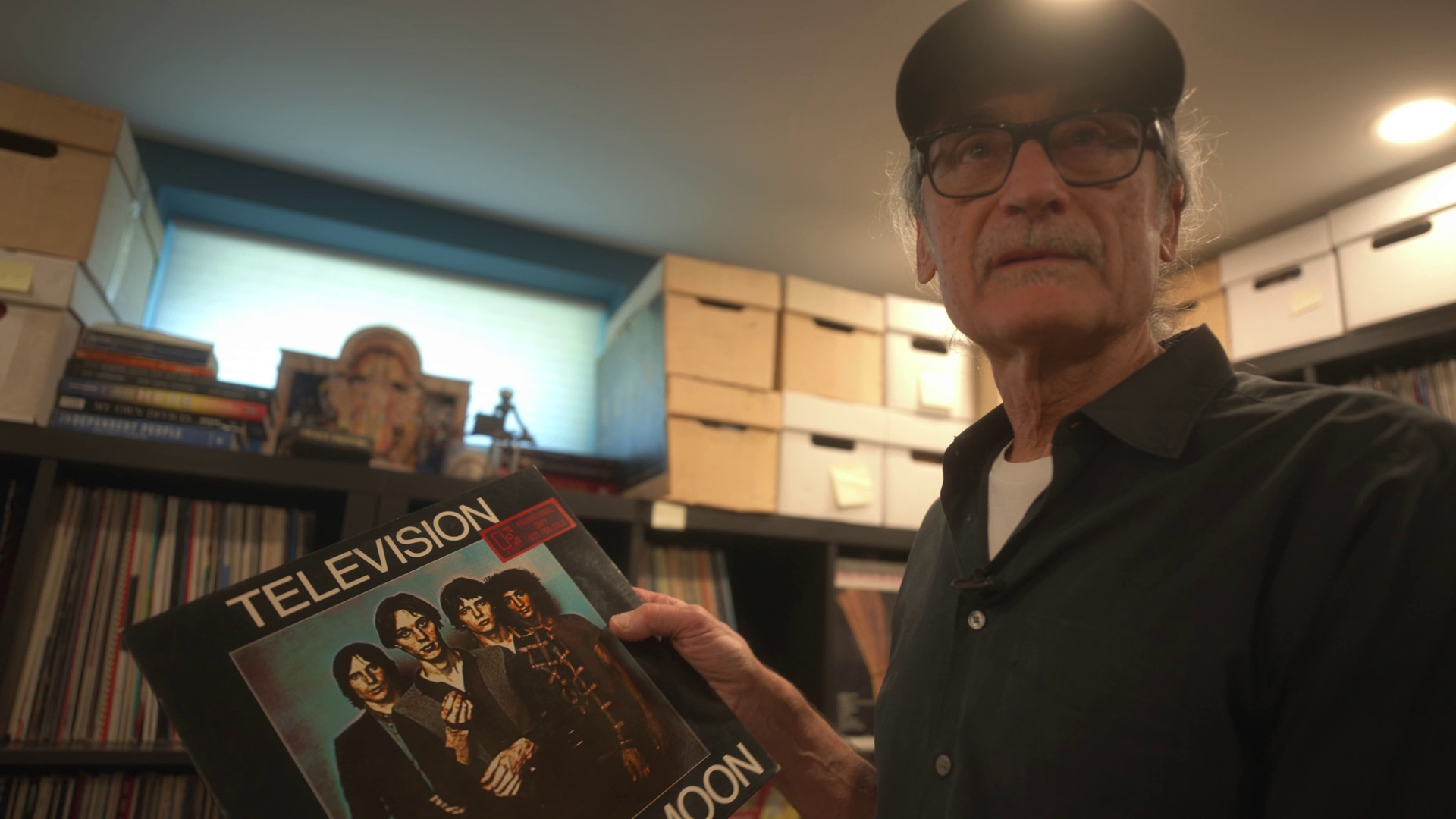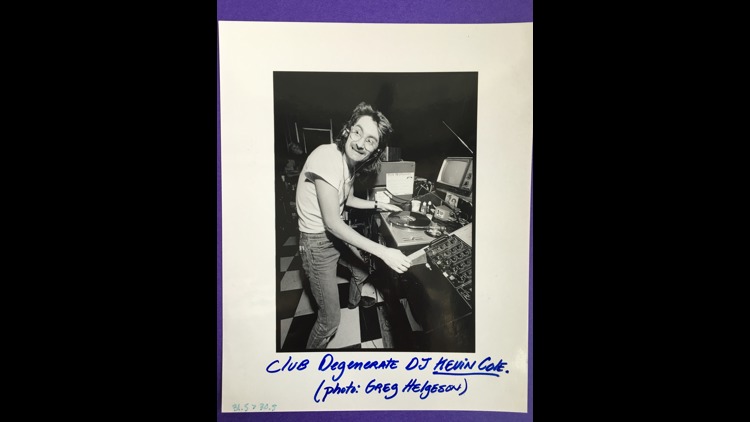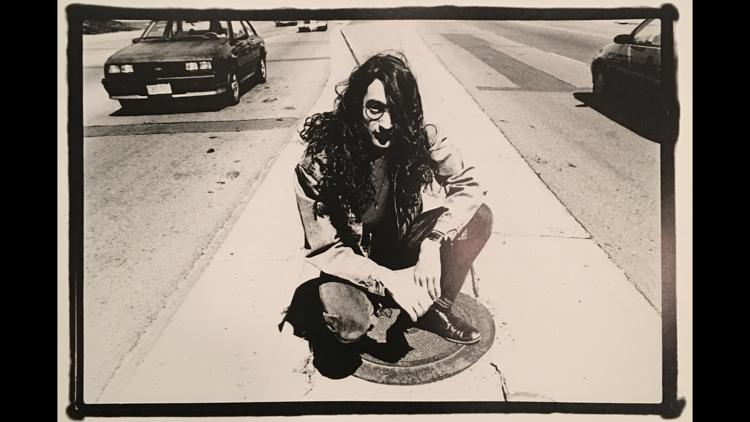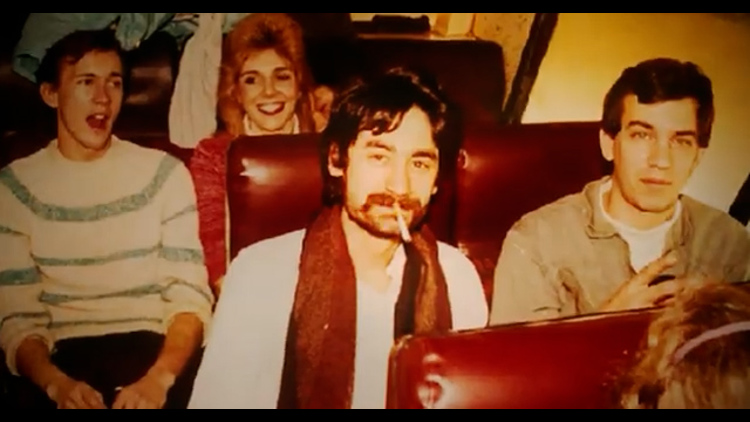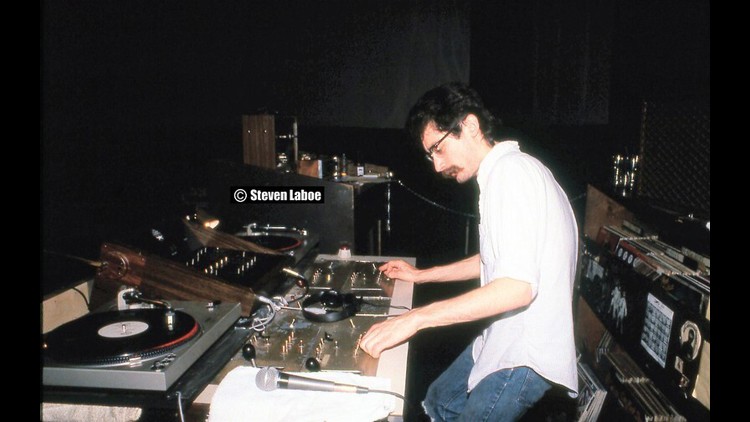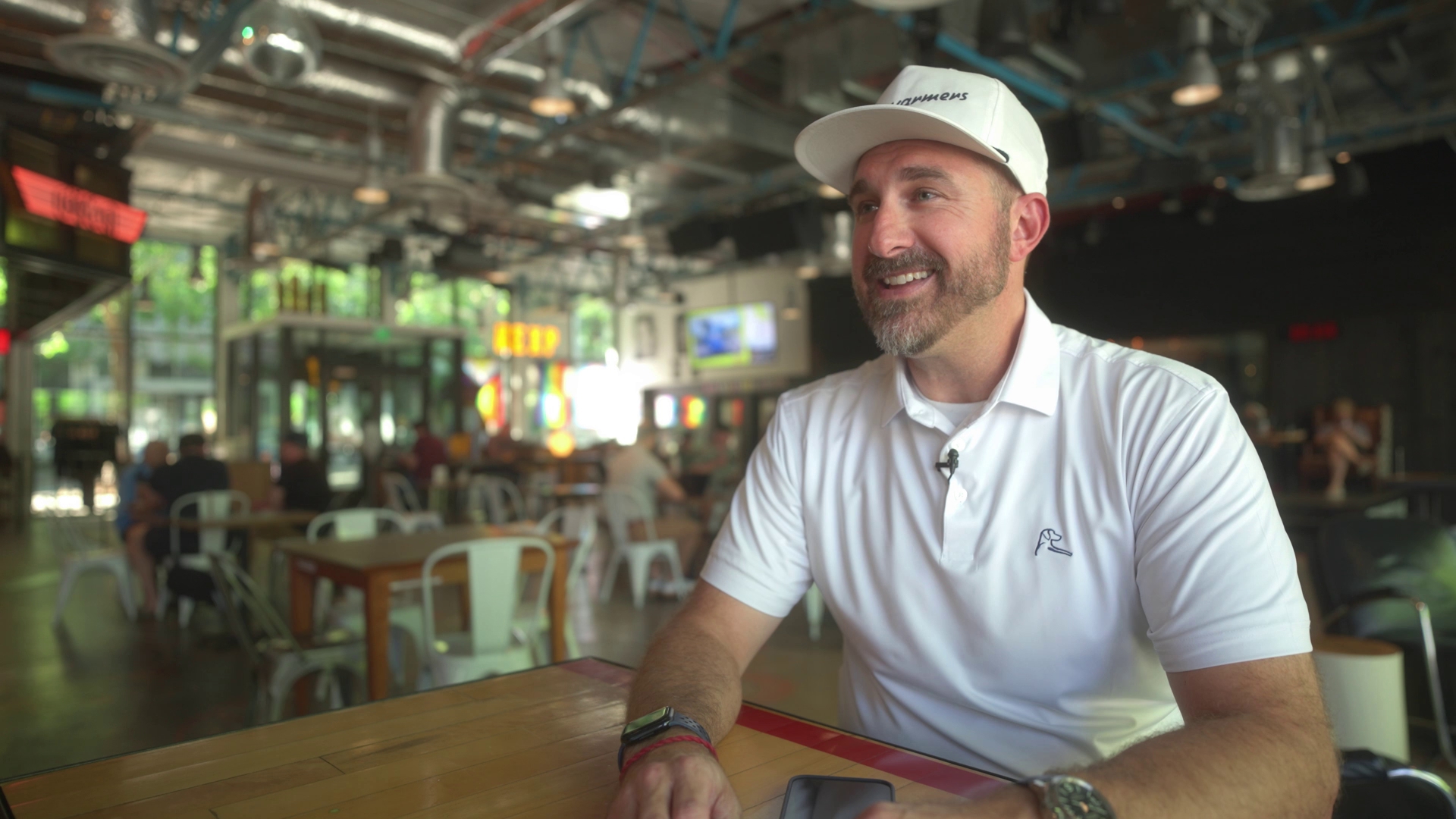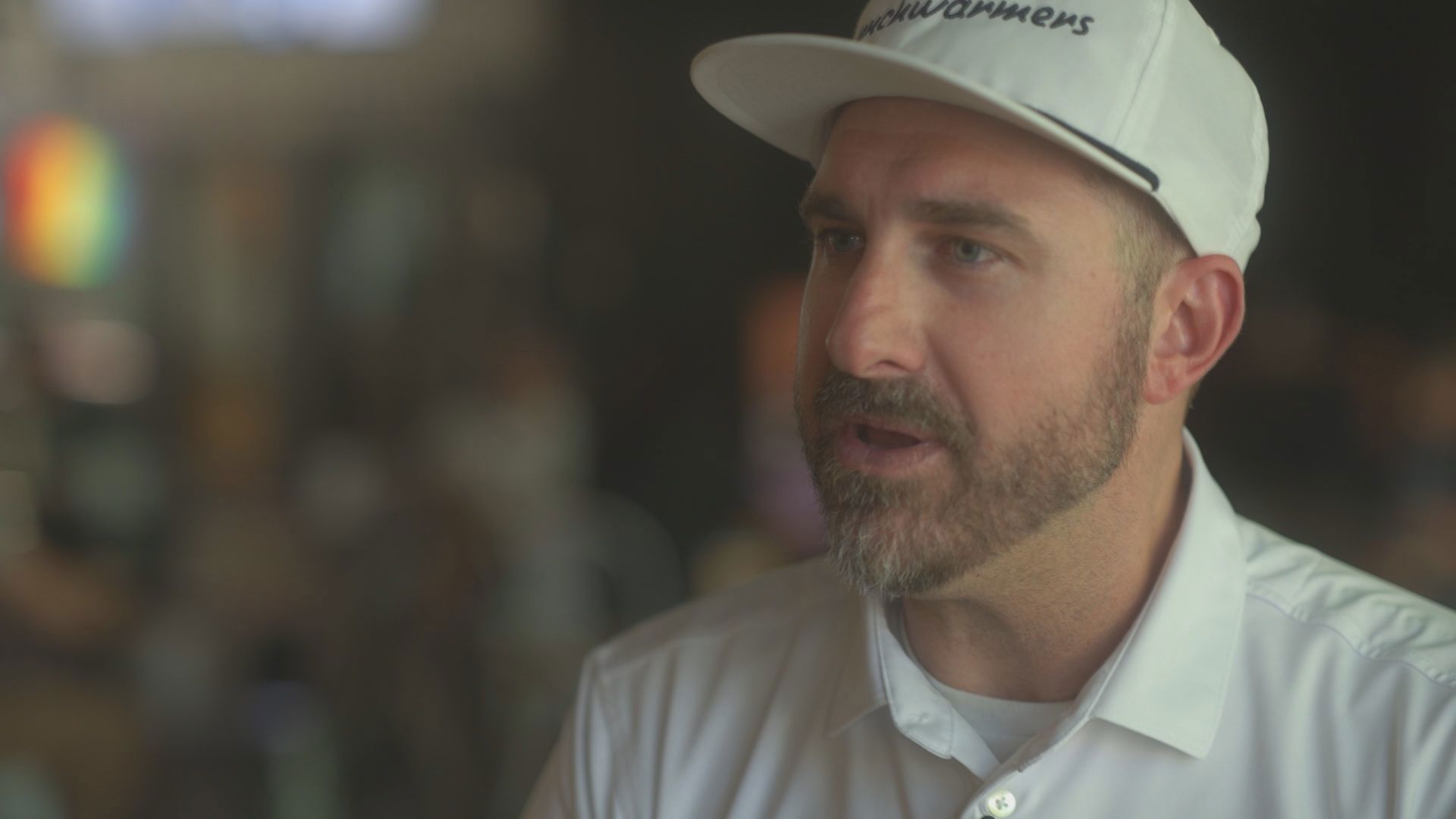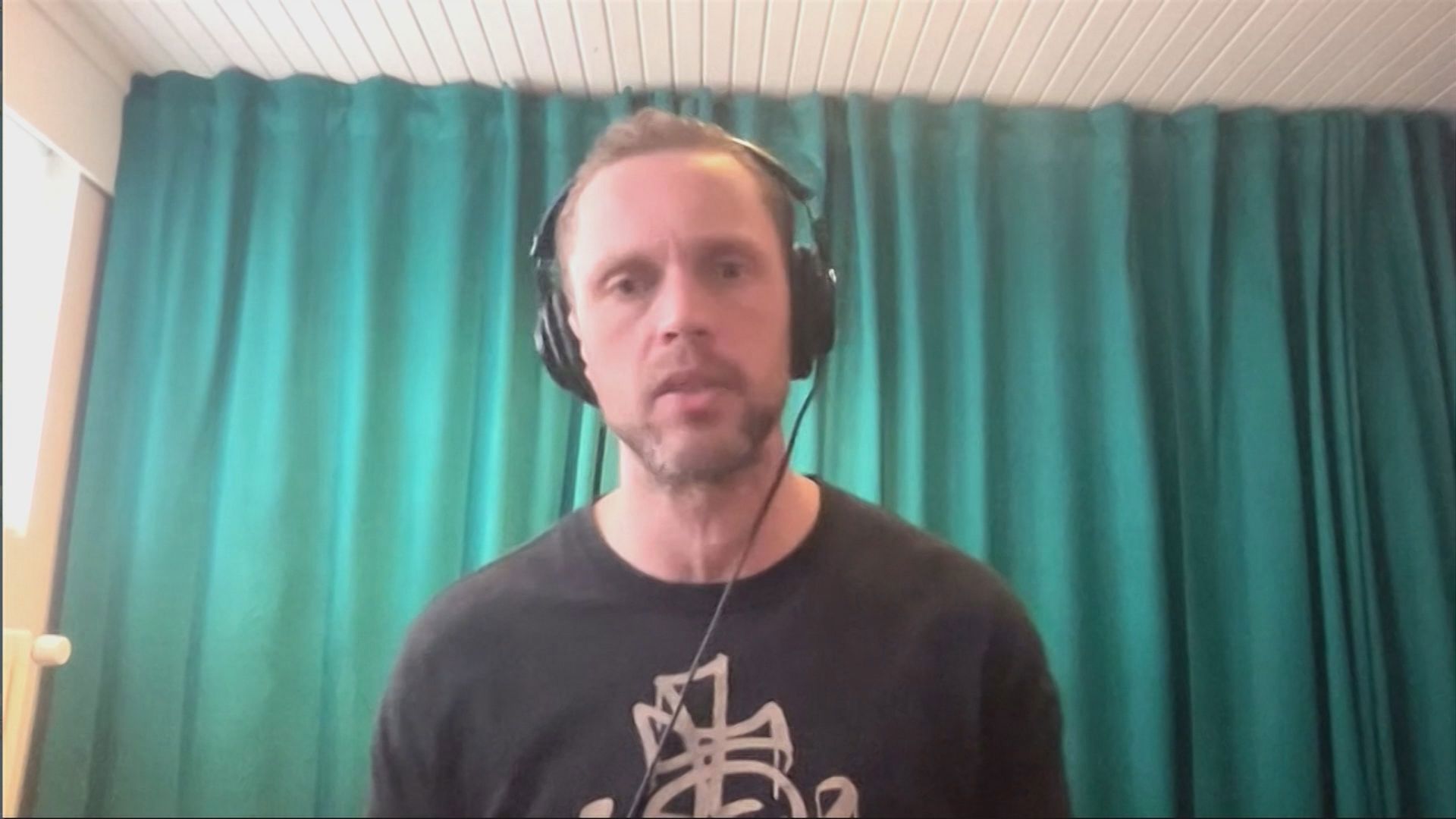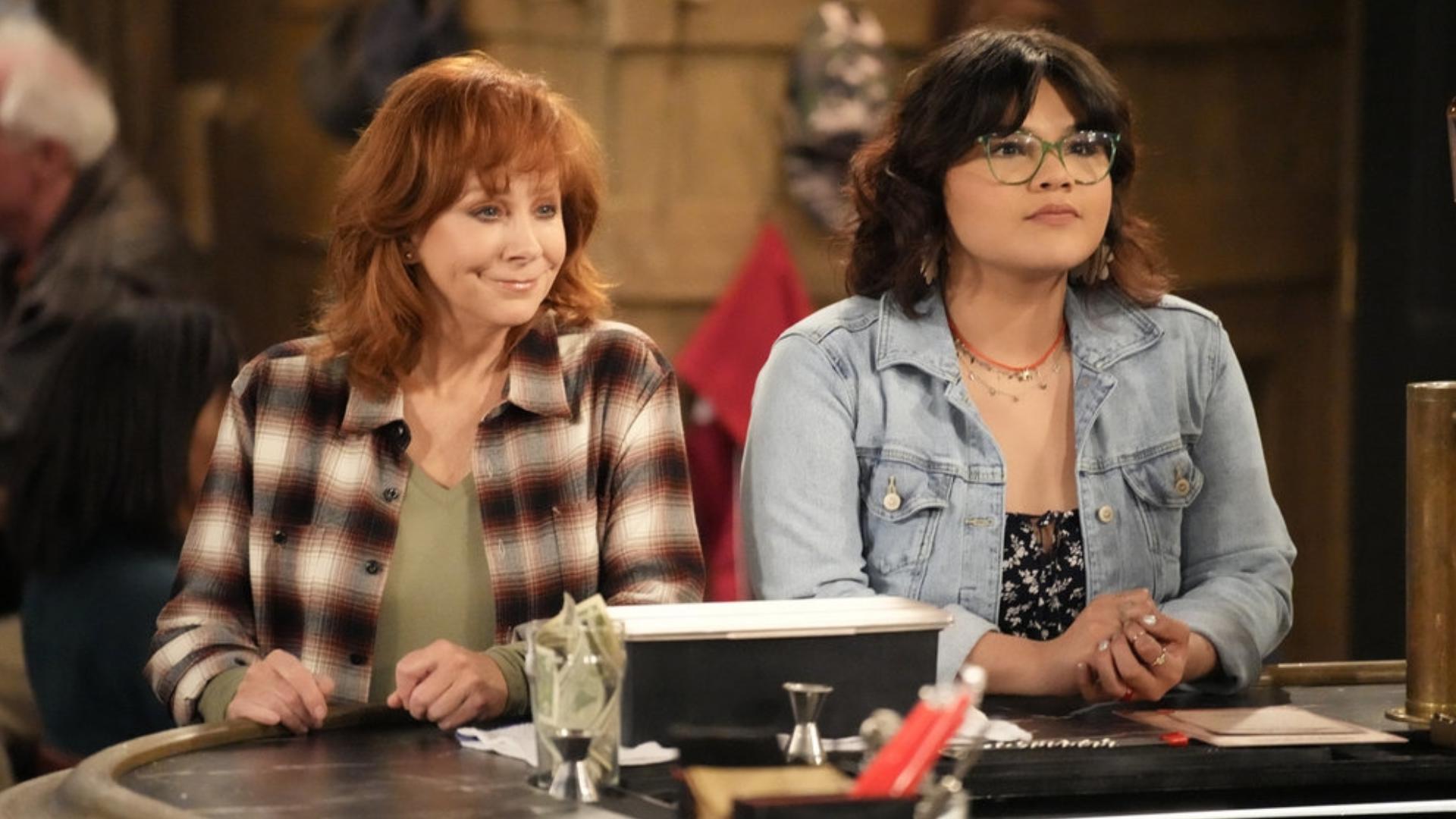SEATTLE — In a quiet corner of Seattle Center, DJ Kevin Cole is dancing to a mix that’s echoing across the world.
“We absolutely have had to change out the carpet because it gets worn out from people dancing,” Cole said, as he broadcasted from a studio in the back of the nonprofit radio station KEXP.
Cole is entering a new chapter of his career. After 50 years mixing music and 25 years DJing at KEXP, he stepped away from his signature show: Drive Time. This summer listeners celebrated Cole’s career as an advocate for independent artists and a voice of love
Cole’s voice became synonymous with the evening commute on 90.3 FM. Broadcasting from 4 to 7 p.m., Cole’s style was both instinctual and impulsive.
“I never plan anything out,” he said as he prepared the next song. “The way I see it, if you’ve already planned it out, why would you do it again?”

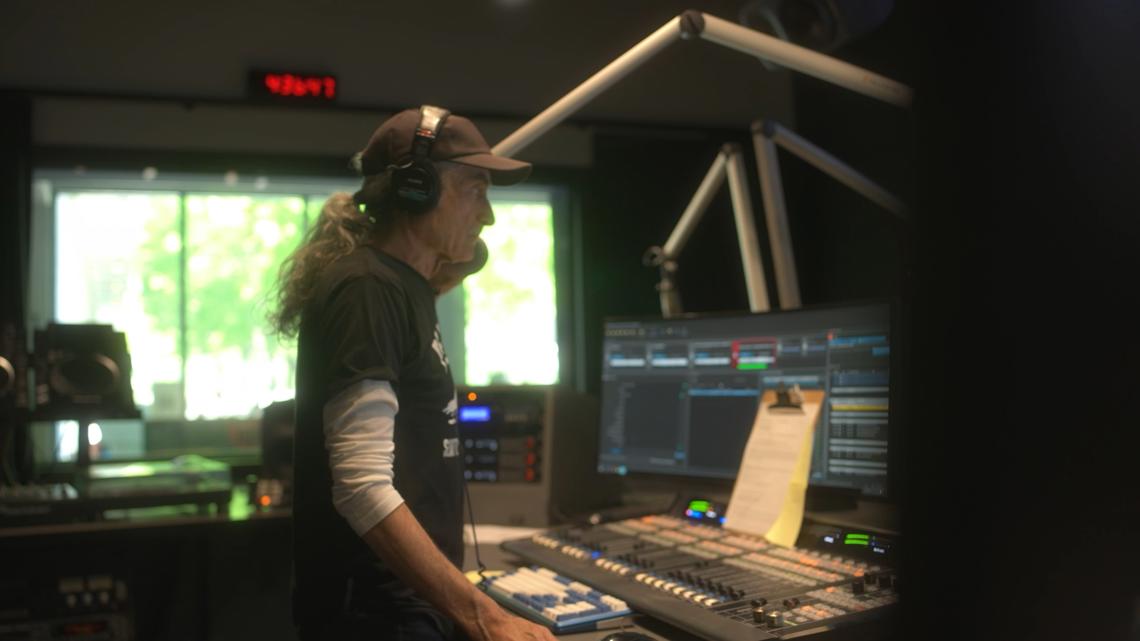
Holding court with Prince
In Cole’s West Seattle basement, there are enough albums to fill a boutique record store.
“I’m not a collector to collect,” Cole said. He doesn’t sell his records, and he doesn’t seek out signatures from artists, but “all of these records carry some kind of meaning.” Many of them include handwritten messages from artists Cole has a personal story about.

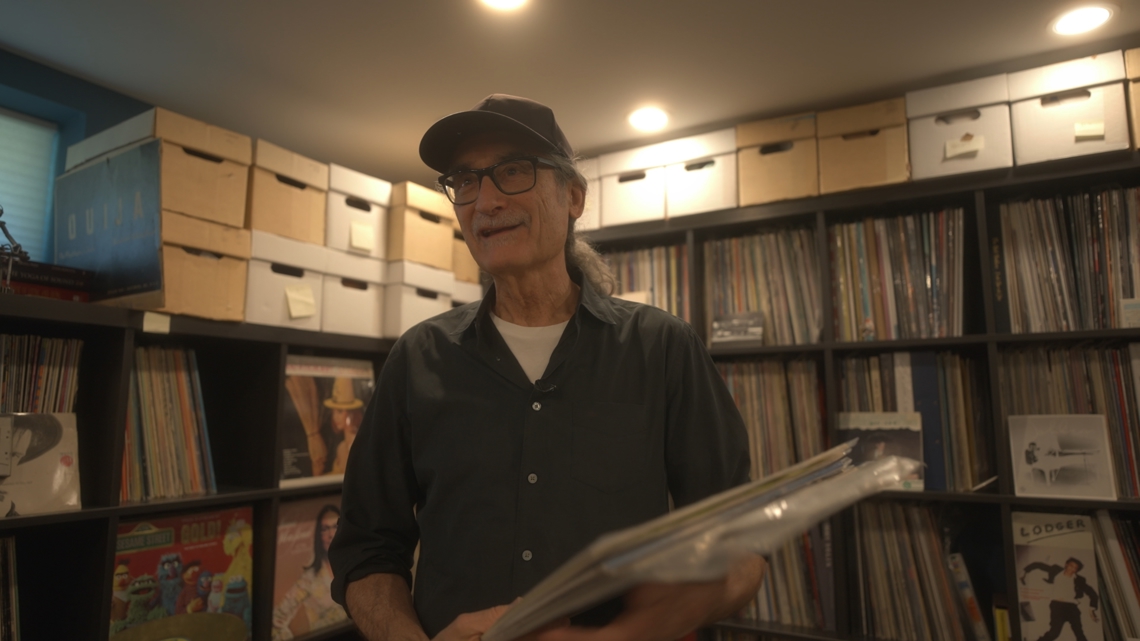
Cole showed off an acetate print of a Prince single from before Prince’s best-selling record "Purple Rain."
“Prince gave this to me in 1983… I was DJing at First Ave,” Cole said, talking about a famed club in Minneapolis.
A star on the First Ave’s façade pays tribute to Cole, not far from the one dedicated to Prince.

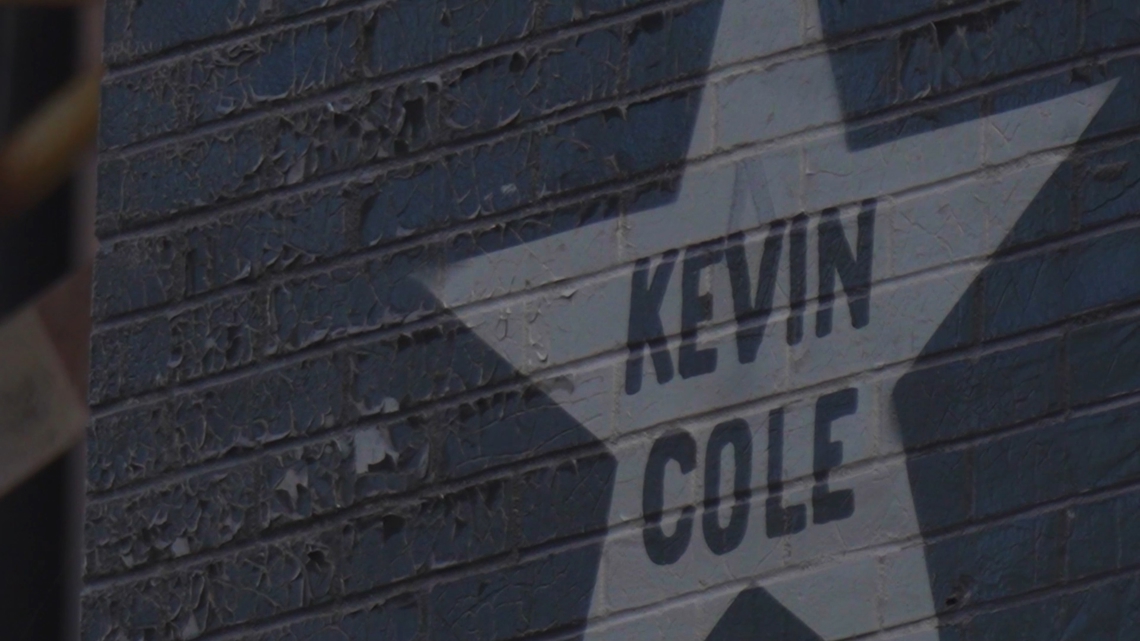
“[Prince] came in like he often did at that time," Cole said. "Supposedly, he had written the song and recorded the song in a 24-hour span of time.”
Prince asked Cole to preview the new record at the club that night. The legendary musician sat in a booth across the dance floor while Cole cued up the song in his nightly dance mix.
“I knew Prince was 50 feet away and waiting for the song to play,” he said. “And I wanted to hit the mix. That was really important to me. Thankfully, it held. The mix was killer. His head snapped back, he ran down to the dance floor and danced to it.”
“I don’t think I’ll ever play it again,” Cole said with a smile.
Every record in Cole’s collection holds a story, but a Word document on his computer absorbs his attention.
“Each one of these is remarkable,” Cole said while scrolling through a list of messages emailed or texted to KEXP during his show.
“This is what you want. You want to feel like you’re having a connection and having an impact,” Cole said. “One of the things I’m proudest of is how the station has evolved from really being about helping people discover new music, to the role music plays in our lives.”
DJ Kevin Cole's early career
A global audience
At KEXP, it’s common to hear DJs name-check listeners like it’s a game of GeoGuessr. “Thanks for listening to Matt in San Diego, Laura in Virginia and Chris in Belltown,” Cole said during one of our three visits to the studio. KEXP listeners from around the world frequently text or email the station. On Cole’s last day, one of them got on a plane.
“I came up from Napa Valley,” said TJ Shushereba, sitting in the coffee shop outside the KEXP studio. “To be at what I consider my mecca.”
Shushereba was in Seattle for a celebration of Cole’s career on July 27, which KEXP called a “remix, not a retirement party."
Starting Aug. 25, Cole will move to a once-a-week show on Sunday.
“I'm drawn to it,” Shushereba said. “There's something here, specifically, my connection to this station. It's DJs, as well as the people that work here, the staff, they've just made such an impression on me."
Shushereba said Cole provided solace during one of the hardest times of his life.
Music heals
Several times a year, KEXP DJs host Music Heals shows. Music is prominent, but the shows also engage with listeners on difficult topics including addiction, illness and death.
Shushereba is one of those listeners.
“March 9, 2018. A day like any other. I went to work… and my wife, who was at the time 26 weeks pregnant, went to work at the Veterans Campus in Yountville, California,” he said.
A gunman and former patient at the Veterans Home, believed to be suffering post-traumatic stress disorder, entered the complex and took three staffers hostage. After a standoff, the gunman killed three female mental health workers and then himself.
Shushereba’s wife, Jennifer Gonzales Shushereba, was one of the victims.
“I left to say goodbye, and ‘I’ll see you later,’” he said. “We had plans for a babymoon. And all of that changed forever.”

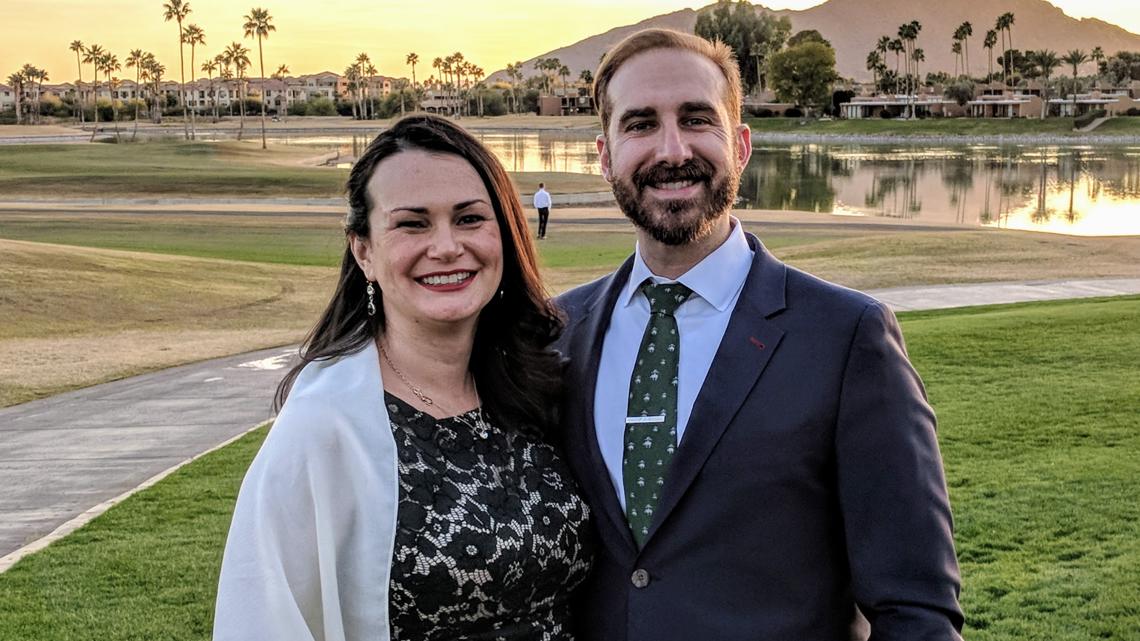
Shushereba spoke with a matter-of-fact tone about his loss, but he said he still feels sad. In the wake of the tragedy, listening to the radio was a source of comfort.
“I felt like when I walked into my house, I felt like I wasn’t alone anymore because I heard that friendly voice of those people on the radio, and Kevin being one of those people,” he said.
The same year that he lost his wife, he was inspired by a Music Heals show about addiction and decided to send a letter to the station. A week later, Cole’s producer asked if they could read it on the air. They dedicated a segment to Shushereba’s wife, with music like Otis Redding’s "These Arms of Mine."
“I am 100% of the belief that I am not the only person that this station has helped, and that Kevin has helped,” Shushereba said.
Common ground
Katie Reno listened to KEXP while undergoing treatment for addiction.
“Hearing that you are not alone every day and music heals every day, it gets repeated in your head,” she said.


While undergoing treatment, Reno suffered seizures. She said listening to her music helped her heal emotionally and physically.
“Music can actually help rewrite my brain,” Reno said.
Reno has been sober for eight years. Cole said he’s right there with her.
“I went to treatment back in 1987,” Cole said. It was the peak of his career at First Ave in Minneapolis. The culture of addiction treatment made it difficult for a professed music lover like Cole.
“At that point in time most places you went to, I was told, ‘You have to quit music. You have to quit DJing,’" Cole said. “But that was pretty non-negotiable to me. I had to feel there was a way I could do what I care about.”
Cole found a nontraditional treatment program that worked for him. He’s been sober for more than 35 years.

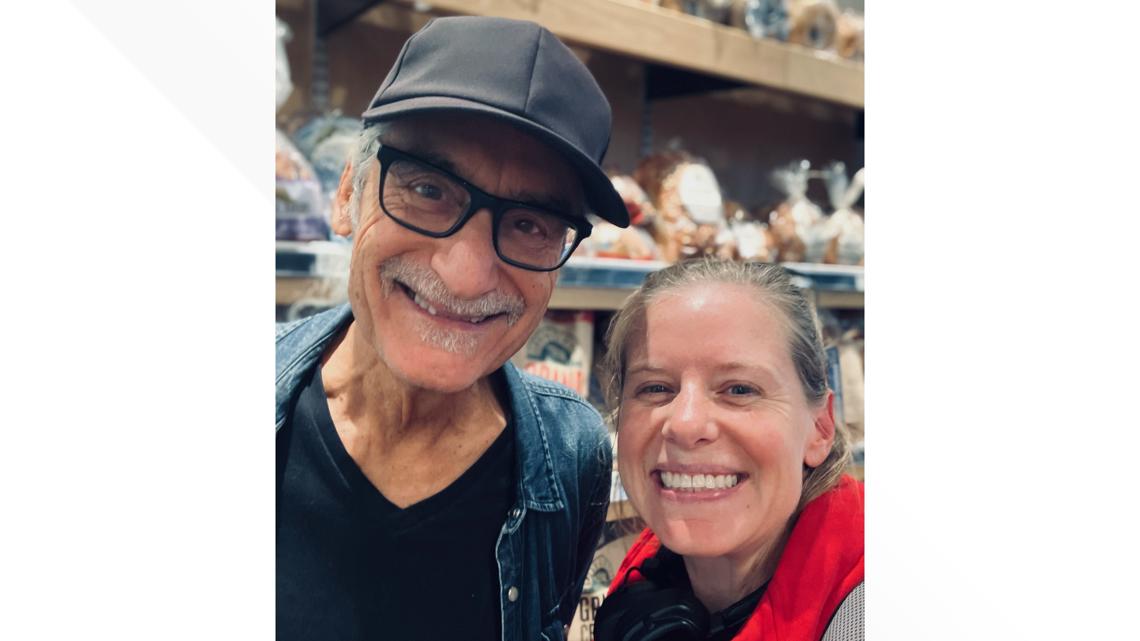
An advocate for musicians
KEXP's influence extends beyond musicians in Seattle and the U.S., as well.
Iceland Music, an organization that helps Icelandic musicians branch out onto an international stage, partners with KEXP in Seattle for showcase events for independent artists. Supported by a direct flight between Seattle and Reykjavik, the partnership has helped spawn an annual festival called Iceland Airwaves.
“There’s pretty much no music infrastructure here if you want to work internationally,” said Leifur Bjornsson, a musician and industry advocate for Iceland Music. "As soon as bands get good or as soon as they get some interest… they relocate almost immediately, like to Europe or the (United) States.”
That was Bjornsson’s experience as a member of the band Low Roar. Bjornsson witnessed the difficult situation midlevel musicians contend with during his time with Low Roar.
“It’s becoming more and more challenging to make touring make sense financially, even less for established proper acts,” he said. When touring, artists are weighing the risk of losing money while on the road. Sometimes, they willingly do so to maintain relevance.
Low Roar received mainstream success when its music was featured extensively in the video game Death Stranding. In October 2022, Low Roar’s lead singer Ryan Karazija died from pneumonia.
The final song
Cole didn’t want his last weekday show on July 26 to feel like a funeral.
“Instead of making my last day heavy, I’m going to just make it all dance music and party music,” he said. “Let’s just have fun.”
His final hours on Drive Time included callbacks to his career, like when Macklemore debuted his No. 1 single "Can’t Hold Us" to the world live on Cole’s show in 2011.
“It’s just always been a really powerful moment for me, just a flashback to being in the studio at that moment,” he said. “(At the time) he was still new.”
Today, the live performance has more than 50 million views on YouTube.
Many fans expected Cole to play Prince for his final song. He did not. Instead, Cole said he saw an acapella version of Roberta Flak singing "Killing Me Softly" about two months ago and thought it might fit.
“I thought it would be emotional, a bit of a tearjerker,” he said. “And it certainly was for us.”

